
26 minute read
Swedish brothers open heated Thai beach bar at home
Swedish brothers built heated Thai Beach Bar as traveling is still restricted
Chang is important, ”says Joel, who enjoys a Thai beer. Private Photo
Advertisement
The Anderson brothers Hugo, 30, and Joel, 32, who live in Väring, Skövde, usually spend a few months a year in Thailand and have visited South East Asia on several occasions. As the pandemic continued to restrict all travel and the borders to Thailand remained closed, the brothers decided to turn their storage shed into their very own heated Thai Beach Bar.
In an interview with Skövde Nyheter Joel Anderson explains,
“We built a sauna at my house. And then we realized that we would rather sit on a sandy beach in 40 degrees and drink beer than in a 80 degrees hot sauna.”
The Beach Bar took three days to decorate and is furnished with chairs, folding tables and decorated with fairy lights. The Thai Bar even has a sun which is a heat lamp and a disco ball.
According to the brothers, there is still a very important detail missing that travelers would expect to see in any Thai business and that is a picture of the Thai King.
The brothers say that the Thai Beach Bar will have to make do until they are able to visit the country again. They are very comfortable there however, so for now they would rather stay home and enjoy the Thailand they build for themselves in Sweden. Hugo Anderson says sunbathing is possible if you just move the table and the plan is to install a sound system which will play the sounds of waves. In the basement of the shed, the brothers have also built a pool and say that it is perfect with a cold dip in the pool after a day on the beach.
Hugo says, “Our parents think it’s a little strange but our friends think it’s fun. They get it.”
Christmas service for the brave in Bangkok

Only some forty members of the Nordic community in Thailand participated this year in the Scandinavian Christmas Service in Christ Church in Bangkok. The news of a second wave of Covid-19 cases had kept most of the usually well over 200 members away this year.
The service was conducted by Danish pastor Christa Lund Herum, while the speech was held by her Swedish colleague Erik Stenberg-Roos. The gospel which is usually read in all four Nordic languages, was this year read only in two languages - in Danish by Consul Alice Skov and in Swedish by Ambassador Jon Gröndahl.
The smaller numbers meant that the after-servicegathering with aebleskiver and red wine became more intimate.









The Nordic countries have operated land based salmon and trout farms long before it became an option to establish salmon farming in the open ocean.

Nordic Aqua Partners to establish China’s first salmon farming facility
Nordic Aqua Partners A/S is about to establish China’s first land based salmon farm. The Nordic countries have been building land based salmon and trout farms long before it became an option to establish salmon farming in the open ocean.
Nordic Aqua Partners A/S is headquartered in Denmark but owns a subsidiary in Ningbo, China, thorugh which Nordic Aqua Partners A/S has invested in the construction of the large aquaculture facility located south of the Chinese million-strong city of Ningbo in Zhejiang which began in spring this year.
The company Nordic Aqua Partners A/S was founded by Danish Ole Jørgensen and Norwegian Ove Nodland in 2016, with address in Ole Jørgensen company domicile (formerly Ribe Maskinfabrik now AH Industries) and the two Scandinavians have since patiently worked on the project to establish a large land-based aquaculture facility for farming salmon in China.
The people of China have a love for salmon, preferably Norwegian and Faroese salmon that needs to be imported but in the future Ole Jørgensen and Ove Nodland plans to provide the giant Chinese market with live and local farmed salmon. It is the world’s first salmon farming facility in China and with the country being the world’s largest fish market, the potential is gigantic.
Ole Jørgensen have long been a pioneer and were amongst the first Danes to start doing business in China almost 20 years ago. He has now used his experience and network to pave the way for the salmon project in China. Norwegian Ove Nodland, who lives in China is originally the man behind the idea of farming salmon in China and through his connections with the local government in his town of residence Ningbo, China he has helped make the project happen. The project is also based on efforts from the Chinese central government in Beijing.
Nordic Aqua Partners has also put together a strong team of excellence with, among others, Ragnar Joensen, longtime front figure at the world leading salmon producer Marine Harvest, as chairman of the board.
Ragnar Joensen has spoken about the large potential of the Chinese project and said, amongst other things, in a press release:
“The prospects for land-based farmed salmon in China are far-reaching, and we are all very excited and optimistic about being the first engine in the world’s largest fish market and for Nordic Aqua Partners’ potential. With the amazing support of our staff, investors, banking syndicate, Chinese government and advisers, we are finally in the process of writing history. Now the company is ready to realize a fantastic project in China, and in less than three years we will supply really fresh high quality and tasty salmon in the Chinese market”.
Ole Jørgensen expects it will take around three years before the first salmon can be caught and packed for the Chinese consumers. The project will begin other parts of its establishment including training of the employees in spring next year and the first step of the project is estimated at 4,000 tons of salmon annually in 2023. This will happen with a supply of a so-called RAS system, which is a fully recycled farming system without wastewater discharge supplied by the significant shareholders in Nordic Aqua Partners, Norwegian equipment supplier Akva Group and Nutreco, Dutch large producer of animal feed and fish feed.
The steps ahead of 2023 with the next construction phase will yield 8,000 tons in 2027 and the long-term target is 40,000 tons on the same property.
In the longer run, Nordic Aqua Partners sees further opportunities for facilities near other parts of China, and with an already existing agreement with a buyer, the potential is a billion-dollar business in the giant Chinese market.
Nordic Aqua Partners now faces the challenges of being the first ever to succeed in raising salmon in a landbased Chinese facility. As salmon being a predatory fish, there are key factors to be aware of, one of them being not to expose the salmon to stress in the facility pools because this will prevent the fish from eating. However, Ole Jørgensen is optimistic and says, “A team has been set up with very large capacities, which are those all over the world who know the most about salmon farming. They see a very clear potential, and I am optimistic.”
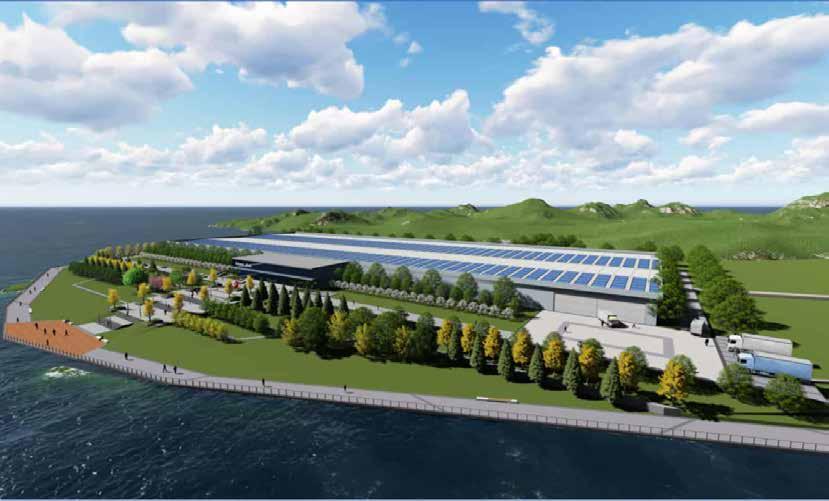
Mika Jokela
- a hardy Finn in Hong Kong
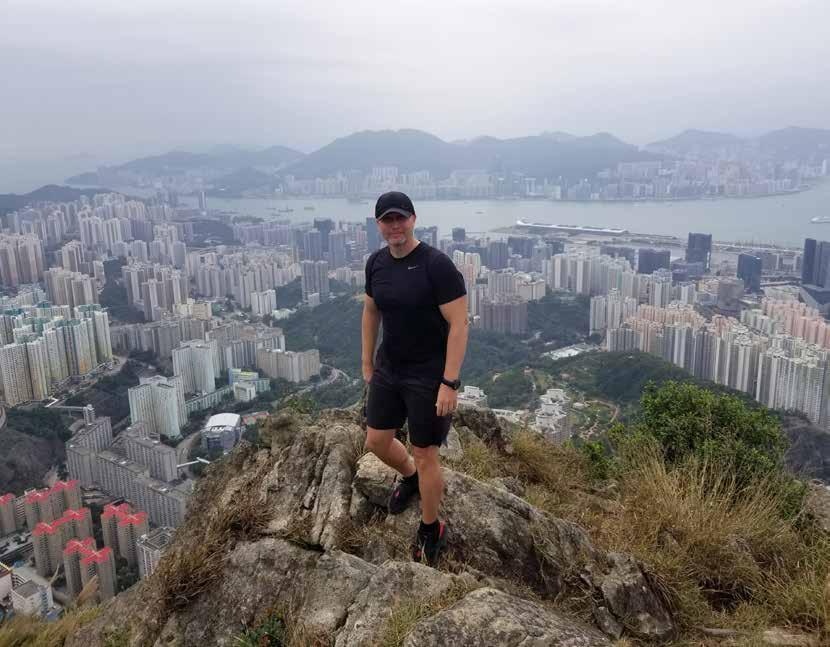
Colin Rampton interviews the Finnish bussiness entrepreneur in Hong Kong, Mika Jokela
By Colin Rampton
Perhaps it is a generalisation to say that Finnish folk are a resilient race, but my recent interview with the friendly and eloquent Hong Kong-based, Mika Jokela did little to dispel that assumption. Apart from scuba diving and kite boarding, Mika includes ice-swimming amongst his hobbies. Yes, when he is in his homeland during the winter, Mika and his teenage sons head for the nearest frozen lake or seashore and plunge in! This may not be everyone’s idea of fun, but it is exhilarating enough, according to Mika.
I had the pleasure of interviewing Mika recently, albeit remotely during these unusual times. He is a longterm Hongkonger, having arrived, young and single, during the final months of the City’s colonial period in early 1997. Twenty-four years, a wife, two sons and a wealth of business experience later, he has no plans to leave, despite having to adapt considerably to the recent Covidrelated restrictions.
Entrepreneurial experience Mika is the owner of Altcoe Limited, a Hong Kong based company which specializes in providing professional services for ICT and high-tech companies. Altcoe also manages investments for mainly European start-up companies with a special focus in the APAC region. Up until recently, Mika travelled extensively within the region, and it was not uncommon for him to fly to 3 or 4 countries in as many weeks. His clients certainly appreciated face to face meetings but mostly they have adapted to the challenges faced by the current restrictions. Mika certainly misses his business trips, which were often combined with a visit to his house in Bangkok. But he is nothing if not adaptable, and he remains cheerful:
“I am optimistic about the future and my mind set has always been that I try not to worry too much about the things I cannot change but try to make the best out of all situations.”
Early Days Mika was born and grew up in the southern city of Turku, where his parents still live. He had an enjoyable childhood and fondly remembers spending the long holidays roaming with his cousins in the countryside in the South Ostrobothnia area. This is from where his parents originated, and his grandmother lived.
Mika has always loved being active and in the outdoors. In his youth, he played football and spent lots of time fishing. He even did a parachuting course!
Later, while studying at the Turku University of Applied Science, Mika worked part-time for the Finnish Government’s National Road Administration, planning new roads, and conducting environmental research. After graduating in 1996 with a B.Sc. in Civil Engineering, he realized he wanted to broaden his horizons and embarked upon another course which included a six-month overseas placement with a Hong Kong company. Mika soon found himself in the challenging position of working on the construction of a municipal waste collection plan in the Chinese town of Shilou in Panyu District. This is in Guangdong Province which neighbours Hong Kong. He stood out somewhat as one of very few Europeans in the town at that time.
Staying in Asia Life in the Far East suited Mika and he accepted a permanent job at the end of the training period. With his base in Hong Kong, he travelled extensively within Guangdong Province, and worked on a variety of projects and gained experience in different aspects of business.
During 1999, after contact with members of Finnish ICT delegations to Hong Kong, Mika became more interested in the ICT field, and began to study part time at Hong Kong’s Open University. This led to the award of Master of Electronic Commerce and the prospect of branching out on his own.

Life Changes Mika’s life in fact changed in more ways than one during this period. He married his air-stewardess girlfriend Luck, started his own business (Cretum Limited (Hong Kong)) and the couple’s first son Samut was born.
At this time Hong Kong unfortunately experienced the lethal SARS epidemic, and Luck decided it was safer to stay in Bangkok with the young baby and extended family support. (She was born in Thailand from Chinese parents and is multi-lingual and very well-travelled.) Mika kept Hong Kong as his base and concentrated on building up the business.
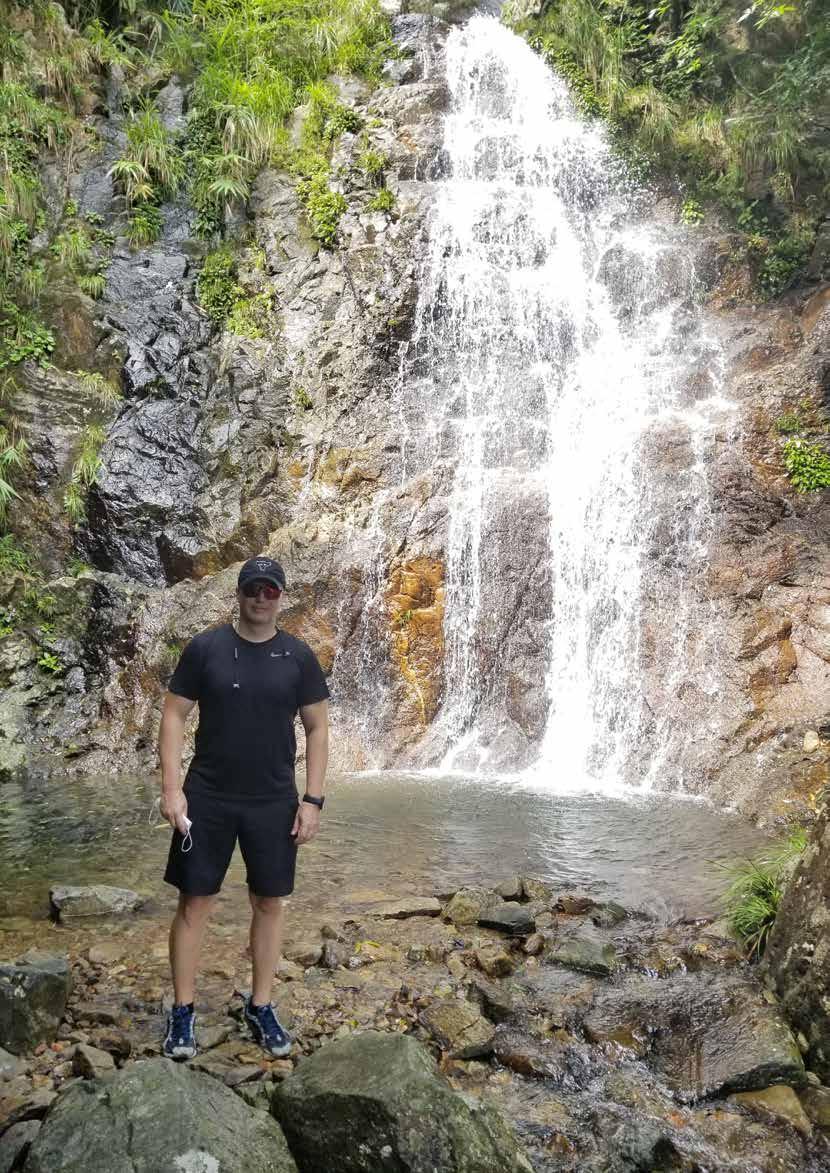
The following years were hectic - commuting between Hong Kong and Bangkok, flying extensively for meetings, expanding his business acumen, and establishing a family home in Thailand. In 2006 the couple’s second son Sky was born. Cretum Limited was in good shape, with an office in Central, several employees and numerous contacts and consultants when, in 2012, Mika accepted an offer to sell to a Japanese company. A short while later, Altcoe Limited came into existence. At Altcoe, Mika uses freelance consultants based upon project requirements. Up until the recent flying restrictions he continued to build up his airmiles flying to meet clients around the APAC area. He took regular trips to Vietnam, Indonesia, Singapore, Malaysia, The Philippines and of course Thailand. For the time being though, he has adapted and relies upon ‘remote’ communication.

Hong Kong Mika speaks highly of Hong Kong. He felt at ease from his early days and admires the business culture found in the City.
“As for running your own business, HK is an excellent place, everything works so well, people are very business oriented and you can get so many things done in one day.”
He also appreciates Hong Kong’s superb location and the ease of moving around:
“I am used to living in a city by the sea and Hong Kong is unique. It is the only big city I have experienced, where, from busy city life in half an hour you can find yourself in nature, with no other people around.”
As well as his ‘extreme’ sports Mika has more mundane ways of maintaining his fitness - hiking the Hong Kong hills and regular visits to the gym. Finnish Roots Mika is proud of his roots and regularly visits his homeland, flying to see his parents whenever possible. He has become more appreciative of Finland’s cleanliness and pure air and is still amazed by the extreme changes that the seasons bring. Although he is happy living in Asia there are a few things he misses from Finland such as locally resourced fresh fish and meat, regular visits to the sauna and of course his family and friends.
Both Samut and Sky are trilingual, speaking English Thai and Finnish. Mika makes a point of speaking to his boys in his native tongue in order that they can communicate with his parents and relatives. As his parents have become older, regular contact with their grandchildren has become more of a priority.
Mika and his family are truly international. Samut was studying in Australia but is now back in Thailand. In January 2020 Sky left the family home in Bangkok to study 9th grade in New Zealand. The family are used to travelling and the boys have done so since their earliest days. When the flying restrictions have subsided, Mika and family will inevitably head to Finland for a holiday, and if it is winter this intrepid Finn and his sons will surely head for a frozen lake!
To discover more about Mika’s company, please visit www.altcoe.com
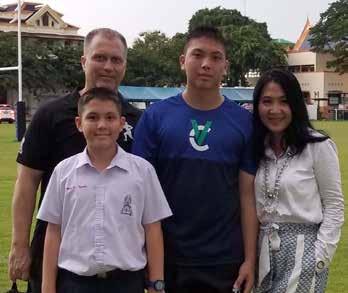
Ice swimming is not as rare as you might think and there are up to 150,000 Finns who regularly participate. Most swims are under a minute long and are followed by a sweat in the sauna. Benefits include improved blood circulation, a boost in the immune system, an acceleration of calories burned and an increase in the release of ‘feel-good’ hormones. Perhaps it is another factor which has contributed to Finland being regularly rated “The Happiest Country in the World.”
Oslo Gin is a tribute to the world’s smallest metropolis. Bergslagens Organic Gin is a handcrafted gin produced by Bergslagens Distillery on a small scale.

The lingonberries, juniper, coriander seeds and lemon peel bring a sweet, herbal citrus aroma to the gin.
Export to Asia saved Nordic Gin House during the pandemic
The Danish company Nordic Gin House has aligned with new global partners in China, Singapore, Vietnam and Myanmar in the midst of the pandemic, to secure export opportunities and save the company from closing down.
In order for the small company Nordic Gin House from the little town Hørsholm north of Copenhagen to survive during Covid-19 restrictions that for a while closed the doors to the company’s existing markets, Jabob Vallentin, founder and managing director of Nordic Gin House knew they had to adjust at record speed and find new potential markets for export of their world renown Gin. In an interview with the Danish media Sjaellandske Nyheder, Jacob Vellentin says: “In February, we started looking at the corona map. We wanted to see where we could do something for our little company. We already had dialogue with several European markets, but when looking at the tsunami of infection that had already hit Italy and Spain, we began to think that it could be a wrong decision. If people “We are actually coming out with a nice result for 2020,” ended up in lock-down, we would not be able to sell says Jakob Vallentin. Foto: Sophus Zarrs Soelberg our products.

København Klassisk Gin carries one of the highest levels of juniper berries in the world delivering flavour the original way.

Jakob Vallentin, owner of Nordic Gin House. Photo: Sophus Zarrs Soelberg

The corona pandemic came as a potential disaster for the company with closed borders, empty airports and no nightlife or social gatherings as the company makes a living from supplying the same airports and nightlife with gin – both in Denmark and abroad. Jakob Vallentin says, “The sale was gone.”
Jacob Vallentin considered putting the company on hold but then he made a realization that has since kept the company afloat. Jabob Vallentin says, “I realized that corona spreads like some kind of flu. The thought became that when it is summer in Sidney, for example, there is probably less corona, and then we have an opportunity to sell products there. That’s how we got the new marketing going and now we can keep our noses above water so to speak.
Nordic Gin House managed to take its portfolio of Scandinavian gins to another level after aligning with new global partners and the company now sells to China, Stuðlaberg Gin, is a Icelandic made London Dry Gin. With the finest ingredients, the pure Icelandic water and years in the making.
Singapore, Vietnam, Myanmar, and the company scouts Thailand and Malaysia in early 2021.
Jakob Vallentin says, “It is really exciting to move so far away from Hørsholm, Denmark. We are lucky that Nordic products are popular in these markets. When we present the products to partners in Asia, we are exotic because we come from the Nordic countries and tell a special story. Nordic Gin House has just sent ten pallets of mixed products from Nordic Gin House to China.
“We are actually coming out with a nice result for 2020,” says Jakob Vallentin. Foto: Sophus Zarrs Soelberg
Nordic Gin House was established in 2018 and in March the company won a gold medal for its »Copenhagen Classic Gin« for the World Spirits Award 2020 competition, which included 25 nations. 107 distilleries from all over the world had sent their best gin to Austria, where the competition took place. The company sells a total of five unique Nordic gins and the customers have mainly been specialty shops, luxury supermarkets, restaurateurs, bars, cocktail clubs, and in earlier times also airports.
Source: Sjaellandske Nyheder
Singapore Louis Tan +65 9839 7633 spirits@cornerstonewines.com www.cornerstonewines.com
China Carter Han +86 (10) 8855 6332 +86 131 6135 3619 carter@just-mart.com http://www.just-mart.com/
News brief Danish expert questions value of new Chinese face recognition tool for pigs
The snout, eyes and ears of a pig are as individually different as a human face. It is now being used for monitoring in Chinese pig farms. Stock Photo. Photo: Annelene Petersen
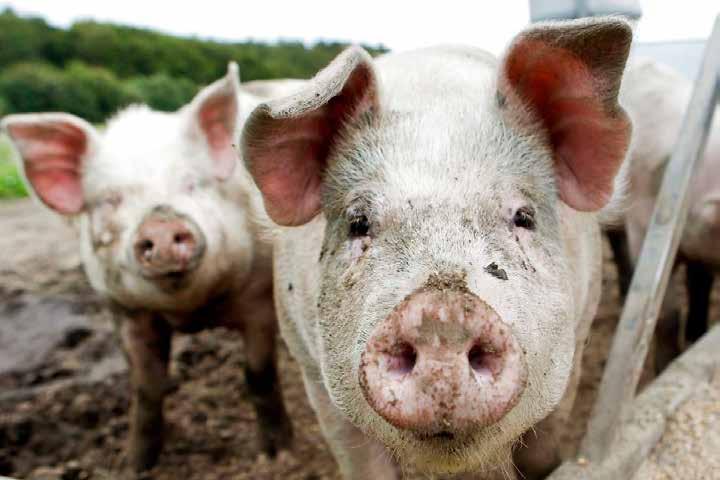
According to The Guardian, Pig farming in China has taken another step to streamline operations in order to save costs, shorten breeding times and even improve pig welfare. The new tool is face recognition technology for pigs.
Danish agriculture experts do, however, not see the same potential in the new technology.
Professor Jan Tind Sørensen, head of the section for Welfare at the Department of Animal Science at Aarhus University said however, that the technology most likely has greater prospects in cattle than in pigs because its very limited what can be done for individual pigs.
“I doubt that individual facial recognition of a pig will have a greater market value,” Professor Jan Tind Sørensen says.
“There is very little that can be done individually for the pigs and piglets. But in agriculture, all kinds of digital solutions are generally worked on a lot and research is in full swing – also at our department,” he adds.
China is the world’s largest exporter of pork and is expected to increase production next year by nine percent. Half of all pigs in the world are believed to live in China, but recent years have been very turbulent for pig producers in China because African swine fever has ended the life of around 40 percent of the country’s pigs. Attempts are now being made to make up for this loss by developing and refining digital pig production to an even greater degree.
Each individual pig, like humans for example, has a unique distinctive feature in the head, and if you have sufficiently smart technology, it can be used for individual recognition and monitoring of the individual pig. When the individual pig is constantly identified and monitored, it’s possible to tailor the feeding, detect irregularities such as disease or decreased appetite very early and monitor the pigs heart rate and temperature.
According to local farmers the new technologies have reduced the cost of pig farming by 30-50 percent but for the time being the modern digitalization is so expensive that only the largest pig producers can participate and not the individual Chinese farmer.
Why does Norway import its own pork intestines back from China

So much in fact that each Norwegian consumes an average of about 100 sausages a year, which is amongst the highest in the world. But if local sausage producers want to use Norwegian natural casings for the sausages they make they have to import them from China, because all intestines from domestic Norwegian animals are exported frozen out of the country as “raw” goods.
Astrid Regine Nässlander made the discovery before Christmas when she started the production of her own Christmas sausages made from local moose meat, but was unable to find local natural Norwegian sausage casing. After some research she was told that all natural casings used to make sausages in Norway are imported from China. Astrid Regine Nässlander says it is completely incomprehensible and continues,
“I do not understand why. I almost do not know if I want to know”.
The explanation is not as complicated as the paradox itself however and it is all about quality and economy explains Morten Eriksen, daily leader of the company Notim, which has supplied natural casing to sausage producers in Norway for the past 20 years.
Intestine production is both an expensive and labor-intensive production and with Norway being such a small market it’s simply not possible for it to be profitable. According to Notim, Norway is also one of the most demanding markets in the world when it comes to the quality of natural casings and the meat stuffing used in sausage production in Norway traditionally Sausage producers in Norway must use imported intestines as sausage casings. Astrid Nässlander says it’s completely incomprehensible. Photo: Synnøve
Norwegians love sausages.
Sunddby Fallmyr/ NRK has a relatively high water content, so even the slightest defect in the intestines will be visible in the sausage production. At the same time, it is important to note that these are traditional recipes that are well incorporated into Norwegian food traditions, so it is not just about finances, but also about the consumer’s expectations of how a sausage should be and should look.
Morten Eriksen says that much of the processing of natural casings takes place in China, which is where much of the knowledge and experience in the industry lies.

from China to the Nordic Region says a new report from China’s Blocktrain&Bitcon news (8tbc) supported by statements from the head of operations at Genesis Mining, the largest cloud mining company on the market.
Chinese bitcoin miners have been concentrated in China, but miners have started to gradually migrate to Nordic countries like Sweden and Norway, says Lyke Aru, financial columnist from 8btc. Luke Aru’s report says that Chinese operations are attracted to eco-friendly green energy in the Nordic region as well as the benefits from countries like Sweden and Norway in contrast to China.
Bitcoin mining is a computerized process with three main functions which includes issuing new Bitcoins, confirming transactions and ensuring the Bitcoin network remains secure. Miners achieve this by solving a computational problem which allows them to chain together blocks of transactions.
Lyke Aru explains that bitcoin miners in China used to enjoy the lack of regulations and extremely cheap electricity prices in China but that deployment of regulatory agencies and strict measures towards cryptocurrencies have been implemented by China’s communist Government in recent years and this have affected mining operations in China.
Philip Salter, head of operations at Genesis Mining has verified Lyke Aru’s statements in regard to Chinese miners moving to the Nordics. Philip Salter emphasized that China’s miner migration is one of the biggest developments in the bitcoin industry right now and said that the movement is due to miners seeking out financial safety and political stability.
Philip Salter explained, “There China’s communist Government has deployed regulatory agencies and implemented strict measures towards cryptocurrencies in recent years which have affected mining

Report indicates Chinese Bitcoin miners migrate to Nordic countries
Chinese miners are migrating
operations in China. Bitcoin miners are seeking out financial safety and political stability in the Nordic countries - and a clean environment, says Philip Salter, Genesis Mining.
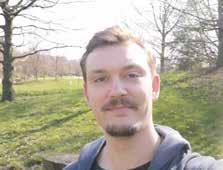
is a very important strategic shift away from mining in China to mining in western countries like Sweden as Bitcoin investors become more public and want more stability and critical safety”.
News brief Suspected kidnapper of Norwegian national in 2015 arrested in Manila on Christmas Eve
Kjartan Sekkingstad boarding an airplane at an airport following his release in the town of Jolo, Sulu province, on Sept 18, 2016. The kidnappers had by then beheaded his two fellow Canadian hostages. PHOTO: EPA

The key suspect in the 2015 kidnapping of Norwegian Kjartan Sekkingstad, was arrested in Manila, Philippines on Christmas Eve according to The Philippine National Police (PNP).
Kjartan Sekkingstad was manager of Holiday Ocean View resort in Samal Island when he and four other hostages were kidnapped in a raid five years ago. The others were Canadian John Ridsdel and Robert Hall and Hall’s Fillipina girlfriend Marines Flor.
Local militant and terror faction Abu Sayyaf Group (ASG) later owned up to the abductions.
After the kidnapping, the hostages were transferred from Samal Island to Sulu and while in the process of negotiation of the multi million US dollars hefty ransom demanded by the kidnappers, the two Canadians were beheaded. Norwegian Kjartan Sekkingstad and Filipina Marines Flor were spared and later released by the kidnappers in 2016.
The Philippine National Police (PNP) reported the arrest of suspect Jehan Aklul alias Khalid Akhalul/ Abu Khalid as he was captured at a rental unit in San Miguel, Manila.
A joint police-military intelligence team conducted the operation that led to Aklul’s arrest and reported that Aklul is the subject of a warrant of arrest issued by the regional trial court (RTC), for the crime of kidnapping with homicide in criminal case No. CrC 113-2016.
Sekkingstad, then aged 56, was abducted in September 2015 from the high-end Philippine tourist resort which he managed and was taken to Jolo by the Abu Sayyaf. In late April 2016, the severed head of Canadian hostage John Ridsdel, 68, was found in southern Sulu province. In June 2016, the other Canadian, Robert Hall, was beheaded. After his release in September that year, Sekkingstad recalled at a press conference the horror as he could hear his friends being beheaded.
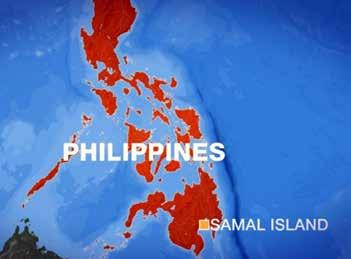
Source: Manila Bullitin
News brief No entry to Philippines until 15 January 2021
The Philippines introduced the day before New Years Eve 2020 new travel restrictions as followed:
Effective from 30 December 2010 until 15 January 2021, as a precaution to the possible entry of the new variant of the COVID-19 virus into the country, The Philippine Authorities has banned all incoming passengers with flights originating or transiting or have travelled within the last 14 days from the following countries: 1. United Kingdom 2. Switzerland 3. France 4. Israel 5. Sweden 6. Ireland 7. Japan 8. South Africa 9. Denmark 10. Spain 11. Singapore 12. Canada 13. Iceland 14. Italy 15. Hong Kong 16. Australia 17. Germany 18. Netherlands 19. South Korea 20. Lebanon
For some reason, Norway Iceland and Finland are not on the list.
Philippine passport holders are exempt from this regulation. They will be subjected to strict 14 day quarantine regardless of their RTPCR test results upon arrival. Travelers are recommended to contact their airline or travel agent or the Philippine Embassy/Consulate in the country of their travel origin for more information.





